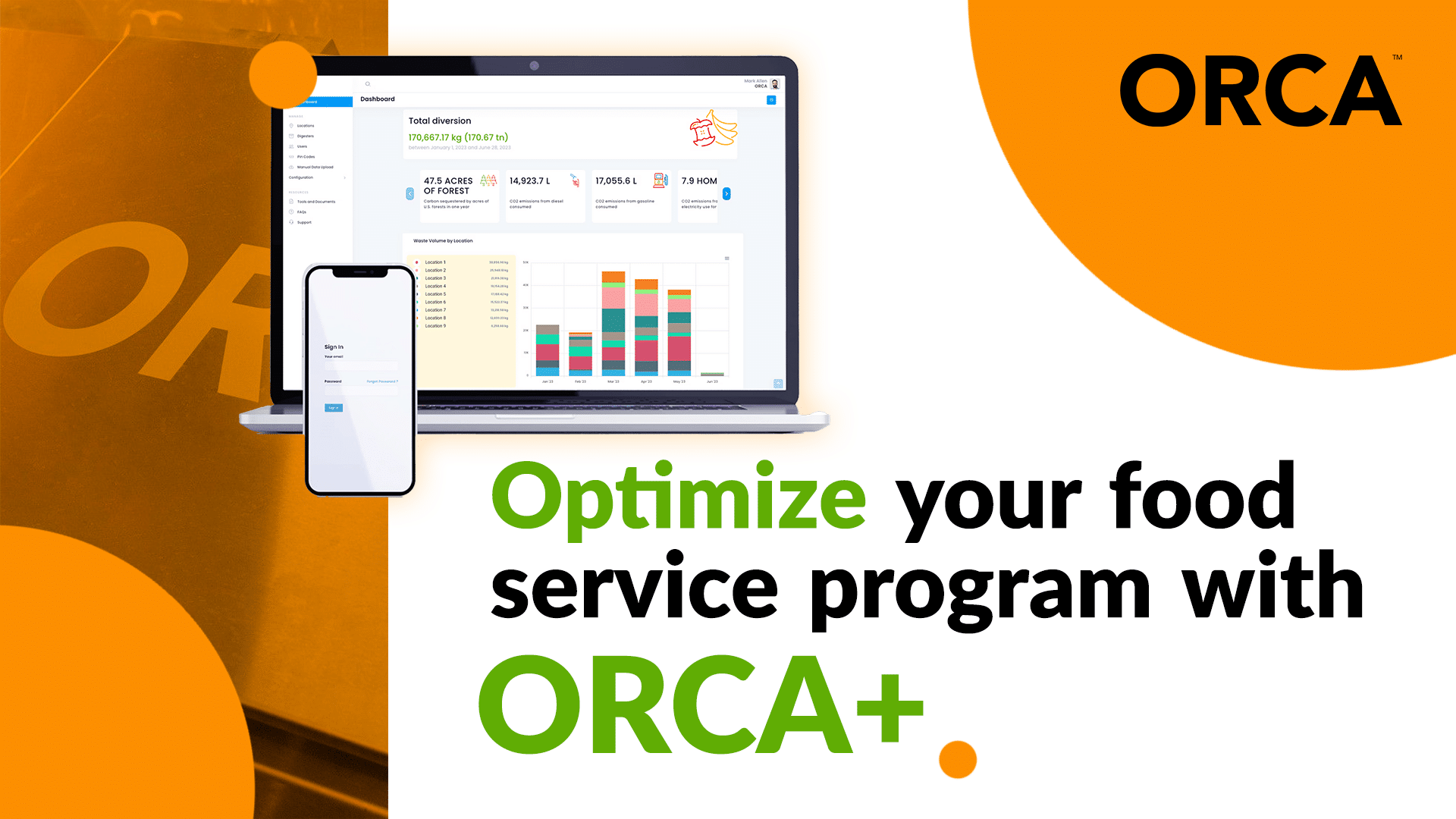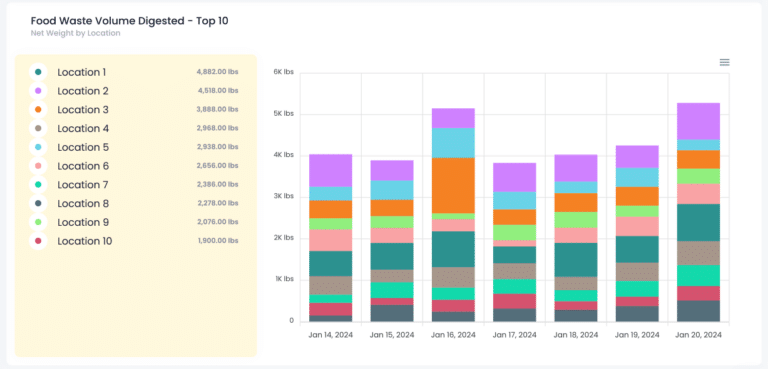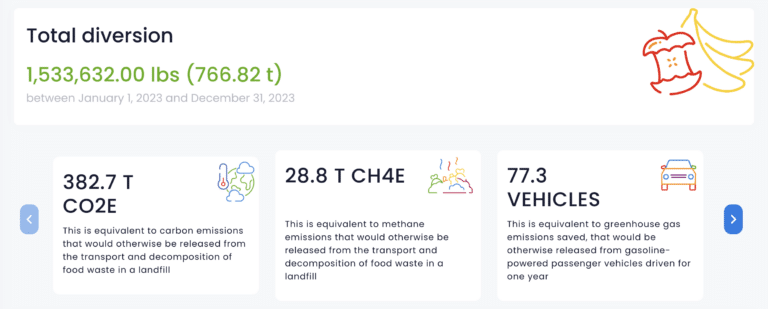
The production and discarding of food waste are unfortunate yet inevitable realities that businesses involved in producing, handling, or selling food products face. From spoilage and food trimmings to overproduction and plate scraps, food waste arises from various sources and stages of business operations. Not only does food waste pose operational challenges resulting in a multitude of direct and indirect costs, but it also significantly impacts our planet. It’s predicted that one-third of all food produced ends up as waste, making food waste, if treated as a country, the third-largest emitter of greenhouse gases. With such profound financial, operational, and environmental challenges associated with food waste, it’s evident why businesses today are actively seeking new and innovative solutions to manage and reduce their food waste.
ORCA digesters offer clients a solution not only to sustainably dispose of their inevitable food waste but also one that tracks, reports, and provides tools to reduce waste production at the source through the ORCA+ dashboard. So, how are clients leveraging this platform?
The ORCA+ dashboard empowers users to delve into waste production patterns, particularly focusing on time-related data. By scrutinizing feeding logs and data charts, users can uncover insights such as excessive waste during specific mealtimes, indicating oversized portions. Additionally, spikes in waste at the end of meals or days might signal overproduction or unpopular menu items. For example, if a restaurant consistently discards large amounts of food shortly before closing time, it may indicate over-preparation for the late evening rush. By discerning these temporal trends, businesses can proactively adjust menus to reduce inefficiencies, save money, and minimize food waste, ultimately enhancing both their bottom line and sustainability efforts.

By closely tracking metrics related to the timing of waste generation, such as daily or weekly waste volumes and patterns, businesses can identify trends and peak periods of waste accumulation. For instance, a restaurant may notice that a significant portion of food is consistently wasted at the close of each weekend shift due to lower customer traffic or menu items nearing expiration. Armed with this knowledge, businesses can adjust their purchasing schedules and quantities to better align with actual demand, thereby minimizing overstocking and reducing the likelihood of food spoilage. Additionally, understanding when food waste occurs allows businesses to implement proactive measures such as offering specials or promotions to utilize excess inventory before it goes to waste.

The ORCA+ dashboard goes beyond simple tracking by analyzing and articulating the diversion data into emission-related environmental metrics, highlighting the tangible benefits of using ORCA instead of sending waste to landfill. For example, it may quantify the reduction in greenhouse gas emissions achieved by diverting organic waste from landfills. This information not only helps operations reaffirm their commitment to the environment but also fosters a sense of pride among businesses, staff, and patrons in their sustainability efforts. Additionally, it complements organizational ESG reporting by providing crucial food waste-related metrics that might otherwise be absent, enhancing transparency and accountability in environmental stewardship initiatives.
Every time food waste is added to an ORCA, it is measured, tracked, and stored. This information can then be used to display both recent or historic data with the click of a button. These metrics enable businesses to establish benchmarks and track progress year over year, allowing them to identify trends, areas for improvement, and successful strategies. For instance, a restaurant may set a goal to reduce food waste by 20% within a year by implementing portion control measures, improving inventory management practices, or collaborating with local food banks for surplus food donations.
Think ORCA and ORCA+ may be for your business?
Interested in staying up to date with ORCA and all food waste-related news? Subscribe in the box above!